August 28-29, Beijing time, the International symposiumon "The Development of Ecological Aesthetics in the Post-EpidemicEra" co-hosted by Shandong University Center for The Study of Arts andAesthetics, Shandong University Center for Ecological Civilization andEcological Aesthetics, Shandong University College of Arts, the ChineseAesthetics Society Of the Professional Committee of Ecological Aesthetics, theUnited States And China Post-Modern Development Research Institute was held inthe form of online conference. Professor Tan Haozhe, the Director of the Center forLiterary Aesthetics of Shandong University, and Professor Fan Meiyun, the Directorof the China Department of the Center for American Process Research, presidedover the opening ceremony. On behalf of ShandongUniversity's Center for Arts and Aesthetics, Professor Tan extended a warmwelcome to the participants, and Professor Fan thanked the organizers of theconference. Xu Bihui, the Vice President and Secretary General of theChinese Aesthetics Society, Du Zexun, the Dean of the Faculty of Arts ofShandong University, and Wang Zhihe, the Executive Director of the Sino-U.S.Institute of Postmodern Development, delivered opening remarks. Professor Xu Bihui praised the theme of themeeting named "The Search of Ecological Aesthetics in the Post-EpidemicEra" and "The Development of Ecological Aesthetics in China". ProfessorWang Zhihe pointed out the urgency and importance of paying attention to theproblem of ecological civilization under the current ecological crisis, and praisedthe efforts made by ecological aesthetics and process aestheticsscholars, and he was convinced that ecological aesthetics, which is a clearstream in the general trend of ecological civilization, would become the correntof the times sooner or later. On behalf of Shandong University's Faculty ofArts, Professor Du Zexun thanked the participants for their support andparticipation, and affirmed the important role of the conference in promotinginternational exchanges in ecological aesthetics. Chinese ecologicalaestheticians Zeng Fanren, Lu Shuyuan, famous American environmentalaestheticians Arnold Berleant, Holmes Ralston, the process aesthetician Jay McDaniel,Sandro Lubaski and other Chinese and American scholars attended the meeting.
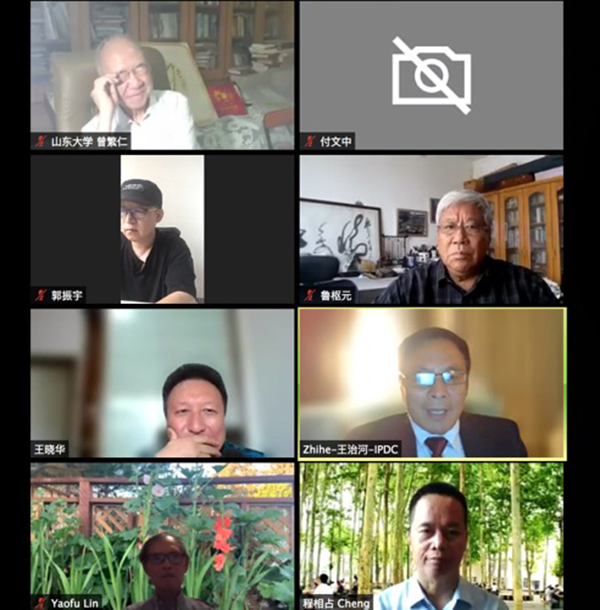

Sandra lubasky, a famousAmerican process aesthetician and President of American flagpole college, madea speech.
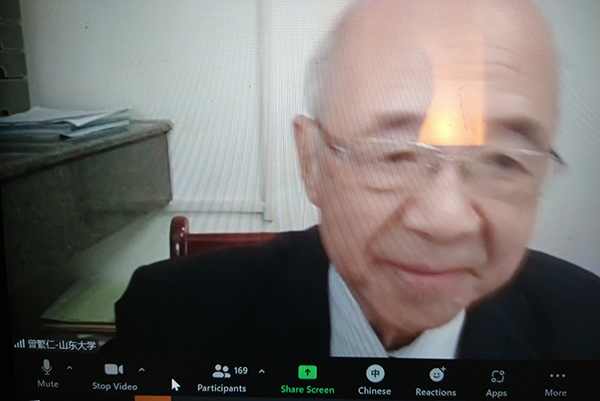
Professor Zeng fanren, afamous Chinese ecoaesthete and former president of Shandong University, made aspeech.

Ralston, a lifelonghonorary professor in the Department of philosophy of Colorado State Universityand the father of modern environmental ethics, made a speech.
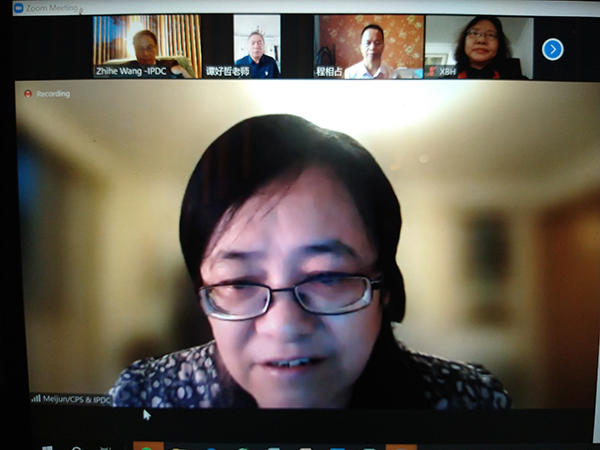
Dr. Fan Meiyun, director ofChina Department of American process research center and President of SanshengValley Cobb ecological college, presided over the meeting.
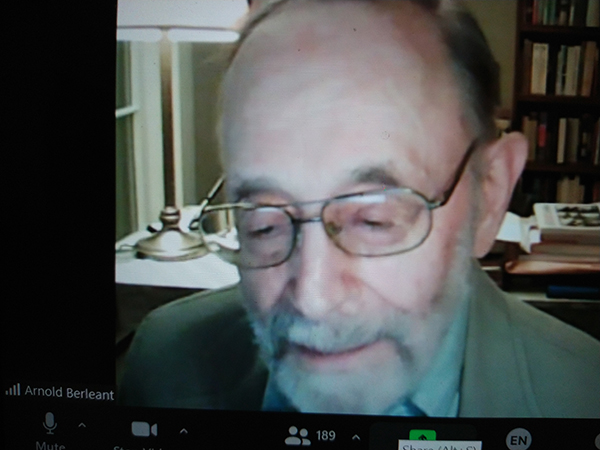
Arnold burlingt, HonoraryProfessor of Long Island University and President of the InternationalAssociation of aesthetics and the International Association of appliedaesthetics, made a speech.

Researcher Xu Bihui, vicepresident and Secretary General of the Chinese Academy of aesthetics, delivereda speech at the opening ceremony.

Dr. Wang Zhihe, executive directorof the Sino US Institute of postmodern development, made a speech.
Theconference was divided into three parts: discussion on the morning of 28th and29th, two parallel sessions on the afternoon of 28th, and ecological artspecial session on the afternoon of 28th. A total of 86 Chinese and foreignscholars gave speeches and discussed the concept of ecological aesthetics,ecological discourse, ecological literature and art, ecological criticism andother issues.
Intheir speeches to the General Assembly on the morning of the 28th, ProfessorZeng Fanren and Professor Lu Shuyuan reflected on the spread of the epidemicand the ecological trap of modernity, starting from the contemporary value ofthe "the way of life" of the Book of the Yellow Emperor and theOriental Poems of Tegor. ArnoldBerleant, emeritus professor at Long Island University, President of theInternational Aesthetics Association and the International Association ofApplied Aesthetics, explained the three meanings of the environment. HolmesRolston III, tenured emeritus professor of philosophy at Colorado StateUniversity and "father of modern environmental ethics", explored therelationship between ecological aesthetics and ethics in the post-epidemic era.Jay McDaniel, an American process philosopher and professor at HanrixUniversity in the United States, analyzed the key concepts of ecologicalaesthetics from the perspective of process philosophy. Sandra Lubarsky, afamous American process aesthetician, pointed out the importance of an emotional world view tothe full development of postmodern ecological aesthetics. Jeremy Fackenthal,executive director of the American Researcher on Ecological Civilization, startedwith the white sea process aesthetics and emphasized the natural function ofart in keeping civilization fresh through the arts.
ZhangWang, director of Shandong Art Museum, introduced the ecological significanceof the "And Power - The First Jinan International Biennale", which ispractical. During the discussion on the morning of the 28th, Chinese and American scholars paidattention to the relationship between process aesthetics, image narrative, bodyaesthetics, artistic participation, perceptual experience and ecologicalaesthetics, and exchanged relevant topics. Theparallel session on the afternoon of 28th was mainly for young Chinese scholarsto speak on ecological aesthetics in the post-epidemic era. They paid attentionto the ecological aesthetics thought of specific literary and artistic works,the ecological aesthetic thought in national culture and the construction ofecological culture, and covered the classical Chinese aesthetics, ecologicalaesthetics, ecological criticism, landscape aesthetics, etc.
Onthe afternoon of the 28th, Chinese artists and Chinese and American criticswere invited to express their opinions on the creation and criticism ofecological art, and had a heated discussion on the theme, value andsignificance of ecological art in the post-epidemic era.
In the speech of the General Assembly on themorning of the 29th,Scholars from China and theUnited Statesexpressed their views on the construction of ecological aesthetics, the development of ecological civilization and theinterpretation of ecological aesthetics. Mr. Lin Yaofu, Emeritus Professor of Taiwan University, from theexplanation of the concept of "easy translation epidemic", putforward his own opinions on the style and road of building Ecological Criticismin China. Steve Roddy, a professor at the University of San Francisco and Kyoto International Japan Research Center, discussed the education that helped tobuild a global community of destiny in the post-epidemic era. In hisaddress to the General Assembly entitled "The Second Enlightenment is aKind of Enlightenment", Dr. Wang Zhihe summarized the ten inherentlimitations exposed by the First Enlightenment, namely, imperialist attitudestowards nature, racist positions towards others, and traditional Nihilisticattitude, contempt for the countryside and peasants, blind worship of science,excessive superstition of reason, one-way interpretation of freedom,homogenization of democracy, high fascination with struggle, and extremeworship of capital. Dr. Wang Zhihe believed that the important root causehidden behind it is the disregard for and repression of beauty, especiallynatural beauty. The core of the second enlightenment of others lies in theaffirmation and desire for beauty, as a kind of enlightenment of beauty, it cannot only provide a strong theoretical support for ecological aesthetics, butalso has inestimable significance for the construction of ecologicalcivilization. From the perspective of organic aesthetics, Dr. Fan Meiyun putforward the proposition of "I am beautiful for me". She believed thatbecause of its deep fit with Chinese culture andorganic thinking, postmodern organic aesthetics is destined to have abroad space for development in China. By reflecting on the four defects ofobjectification, landscape, art and its implied humanization of modern westernnatural aesthetics, Professor Cheng Xiangzhan of Shandong University's Centerfor Literary aesthetics put forward the corresponding transformation ofcontemporary western natural aesthetics in the four aspects of ethics,environment, ecology and naturalization.
At the end of the conference, Professor Wang Zhiheand Professor Cheng Xiangzhan summarized the conference. Professor WangZhihe summed up the meeting as the word "falling", that is, deep inthe love of ecological aesthetics as a combination of ecology and aestheticbeauty, he believed that this meeting from the breadth and depth of an academicfeast, we gathered in the Quartet, rich and wonderful views, is China'secological aesthetics in the history of the development of a rich andcolorful. Professor Wang Zhihe highly affirmed the exploration ofecological aesthetics thought by Professor Zeng Fanren and Professor Lu Shuyuan,and made a pertinent evaluation and summary of the speeches made by colleaguesin the academic circles. Professor Wang Zhihe quoted Professor ZengFuren's point of view that ecological aesthetics is "life aesthetics"and "life-saving aesthetics", advocating that we practice the road ofunity of knowledge and practice, and contribute to the practice andconstruction of ecological civilization.
Professor Cheng Xiangzhan affirmed the landmarkrole of this meeting in the history of ecological aesthetic development, and expressedgreat confidence in the international impact of the academic achievements ofthis meeting, said that the meeting promoted communication and exchange betweenChinese and foreign theorists, critics and artists, which had a positive effecton China's ecological aesthetics and ecological art to the world. ProfessorCheng Xiangzhan reiterated the theme of the meeting, namely, "exploringthe survival and ecological aesthetics of the post-epidemic era" andlooked forward to the relevant issues as an opportunity to further explore theissues.
The peak number of participants in a single sessionof the conference was 239, which attracted the attention of dozens of media.People's Daily Overseas website released the opening information under thetitle of "The Introduction of Life and Growth -- International Symposiumon Ecological Aesthetics and Ecological Art Exhibition in the Post-EpidemicEra" on 27th, indicating that the conference has attracted wide attentionfrom relevant groups.
Zhuang Wei, Ph.D.of the Center for Theological and Aesthetics Research of Shandong University
-----------------------------------------END-----------------------------------







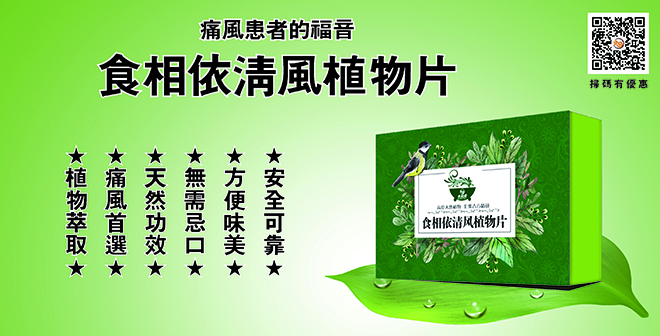




|




